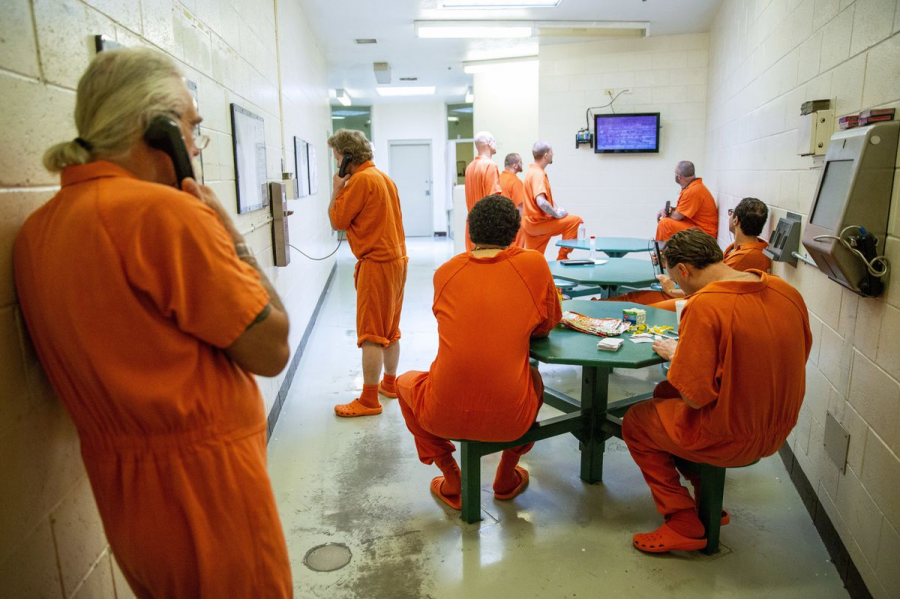Prisons must adjust to coronavirus spreading through packed cells
Prisoners packed in tight spaces make it difficult to prevent the spread of the coronavirus and steps must be taken to slow the spread throughout jails.
Prisons are packed. The coronavirus is contagious and deadly. These two facts do not blend well. This mixture has served as a recipe for disaster in prisons all around the world, where coronavirus has quickly infected prisoners who practically live on top of one another. So government leaders are faced with a difficult decision: risk the safety of their communities or risk the lives of these inmates?
They don’t necessarily have to choose one or the other.
Inmates who have tested positive for coronavirus should certainly be released to hospitals immediately. Inmates with coronavirus who have committed violent crimes should be monitored when in hospital. It is not essential to monitor prisoners who have committed less serious and non-violent crimes, but they should still return to prison to finish their sentence when recovered.
While steps are now being taken to release prisoners to hospitals, it was not always this way. According to WBUR News, one prisoner in Massachusetts with coronavirus symptoms was left in his cell and treated with medicines that you would give a child for the flu, not an adult with the coronavirus.
Healthy inmates who have committed nonviolent crimes should be temporarily released to the confinement of their homes in order to prevent the spread of the virus. If these prisoners have not previously manifested violent behaviors, staying home until this virus passes will likely reduce danger rather than increase it. Attorney General William Barr released a statement on March 26 ordering home confinement to more vulnerable inmates.
For healthy inmates who were imprisoned as a result of a violent or more serious crime, it would be unsafe to release them prematurely. However, with the temporary liberation of low-danger prisoners, it would yield much more space for the remaining inmates to isolate in much smaller groups.
As for prisons with no confirmed cases of coronavirus thus far, it is crucial that they stay on lockdown and only allow new people to enter the prison who have tested negative for coronavirus. While the nature of prisons does not heed to social distancing guidelines, if nobody in the prison has yet to contract the virus, the limited entrance and exiting of people into and out of the prison will hopefully prevent the virus from entering unaffected jails altogether.
While some compromises must be made, a life is a life, and protecting inmates in this unprecedented time of global mayhem is crucial. It would be cruel to leave all prisoners in their packed cells as coronavirus ravishes through them and steps must be taken in order to prevent the further spread of the virus throughout prisons.
















































